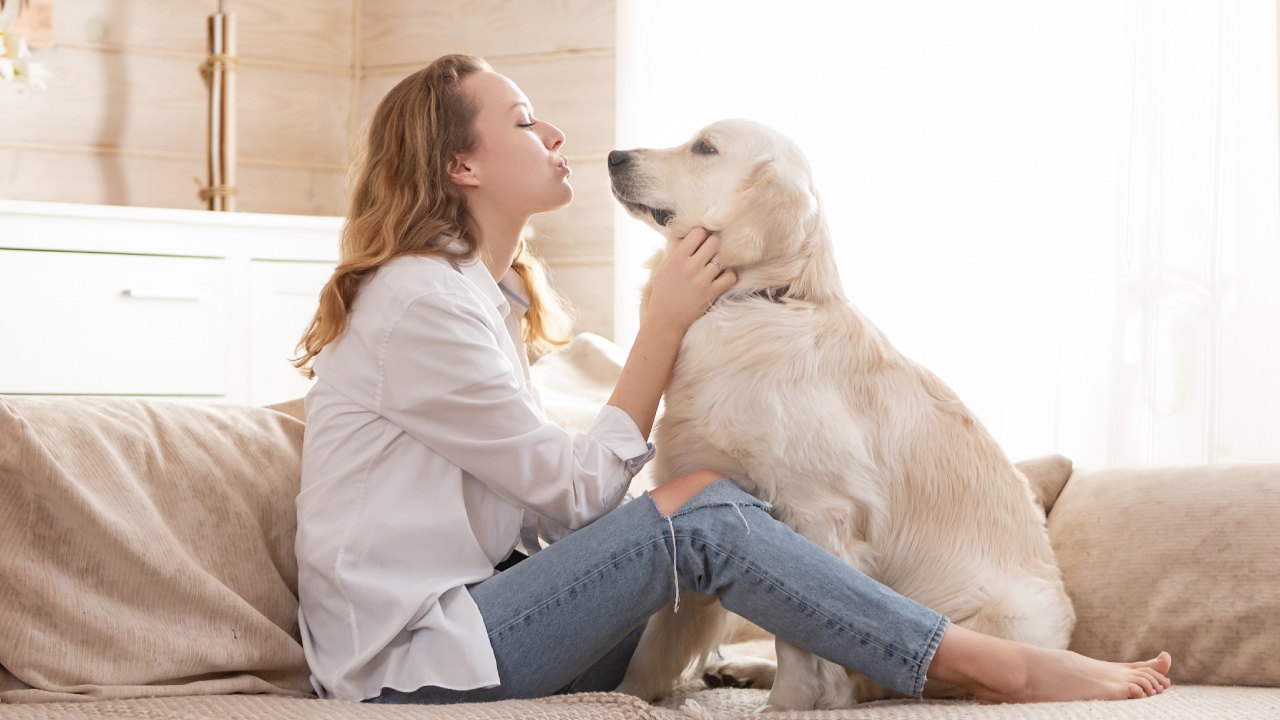8 tips for keeping pets healthy that won’t break the bank

Australia is a nation of animal lovers. Collectively, we have more pets than people (28.7 million pets vs 26.7 million people) and spent $33 billion on them in 2022. Not only is a healthy pet a happy one, but healthy = wealthy with fewer vet bills and medications, plus less time off work to look after them. But how can you keep spending under control without sacrificing your pet’s health? Read on!
1. Choose the right pet
Save yourself considerable drama – and money – by getting the right pet for your family from the outset.
For instance:
- Small dogs eat less, making them more suitable for tighter budgets.
- Energetic breeds won’t thrive if you can’t exercise them sufficiently.
- Low-allergy breeds (like Poodles and Burmese cats) can save allergy suffers on antihistamines and tissues.
2. Secure your yard
Prevention is always better than cure, so a secure yard/enclosure is a worthwhile investment.
The cost of a new fence (especially if split with neighbours) often dwarfs the vet bills if your beloved is hit by a car.
A secure pet is less likely to fight with other animals or eat things they shouldn’t.
Plus, many areas impose fines for unrestrained pets.
3. Be organised
An old phrase says: “For every minute spent organising, an hour is earned.” I’d suggest that hour earned also brings dollars saved.
For pets, organisation includes:
- Staying up-to-date with treatments and veterinary visits. Overdue parasite treatments, vaccinations, and check-ups often cause unnecessary and expensive complications.
- A tidy home, which saves replacing destroyed shoes etc and fees on overdue bills where the notice was chewed.
- Keeping household dangers – e.g., toxic plants, chemicals, foods (chocolate!) – out of your pets’ reach to avoid accidental poisoning.
4. Weigh up insurance
Many people say they’ll put money aside instead of buying pet insurance. But they don’t – the money winds up elsewhere.
When considering insurance, weigh up each policy’s conditions, your pet’s health, and your ability to pay unexpected bills.
Without insurance, small amounts may not be problematic. But unexpected surgeries or specialist tests and treatments could see you thousands of dollars out of pocket.
The more claims you’re likely to make, the more valuable insurance may be.
If you do get insurance, choose a reputable provider with positive reviews for paying claims promptly.
5. Master DIY
Put your hands to work and make your pet’s essentials at a fraction of buying new.
Consider making your own:
- Toys – such as uncooked rice or pasta in a PET bottle. (Beware things like sticks, which can cause injuries and splinters.)
- Meals – cook in bulk and freeze portions for added savings and convenience. Homemade meals may be healthier too, since you know exactly what they’re eating.
- Bedding and towels – from your old clothing, linen etc.
Always use safe materials and ingredients that won’t be a choking hazard. Monitor items for wear and tear.
6. Involve your kids
Getting kids/grandkids involved with animal care is good for everyone – including your wallet.
Kids love animals. Pets love children’s playtime energy. And you’ll save paying someone else to do it when you’re short for time.
Ask them to walk the dog, clean the litter tray, collect the eggs, top up food and water.
You can make it form part of their pocket money – teaching them the value of earning – all while helping them develop important life skills like empathy and responsibility.
7. Consider legalities
Custody and inheritance matters affect furbabies too, so it’s important to have a plan:
- Wills – who will have guardianship if you die suddenly? Is that person willing and able? Have you left money to pay for their ongoing care?
- Separation/divorce – pets sadly are sometimes used as weapons in a separation. It could be emotional blackmail over custody, or one partner is given custody but cannot afford to keep them on a single income. The stress adversely affects everyone – including your pet.
8. Spend time with them
Companionship is important for your pet’s health – and yours. And it’s free!
Research suggests dog ownership improves heart health for humans and patting pets lowers blood pressure and stress hormones. Plus, you’ll both benefit from being more active and making new friends (such as at the dog park).
So, what are you waiting for? Hitch up the lead or pick up a toy and give your furbaby some love!
Helen Baker is a licensed Australian financial adviser and author of the new book, On Your Own Two Feet: The Essential Guide to Financial Independence for all Women (Ventura Press, $32.99). Helen is among the 1% of financial planners who hold a master’s degree in the field. Proceeds from book sales are donated to charities supporting disadvantaged women and children. Find out more at www.onyourowntwofeet.com.au
Image credits: Shutterstock
